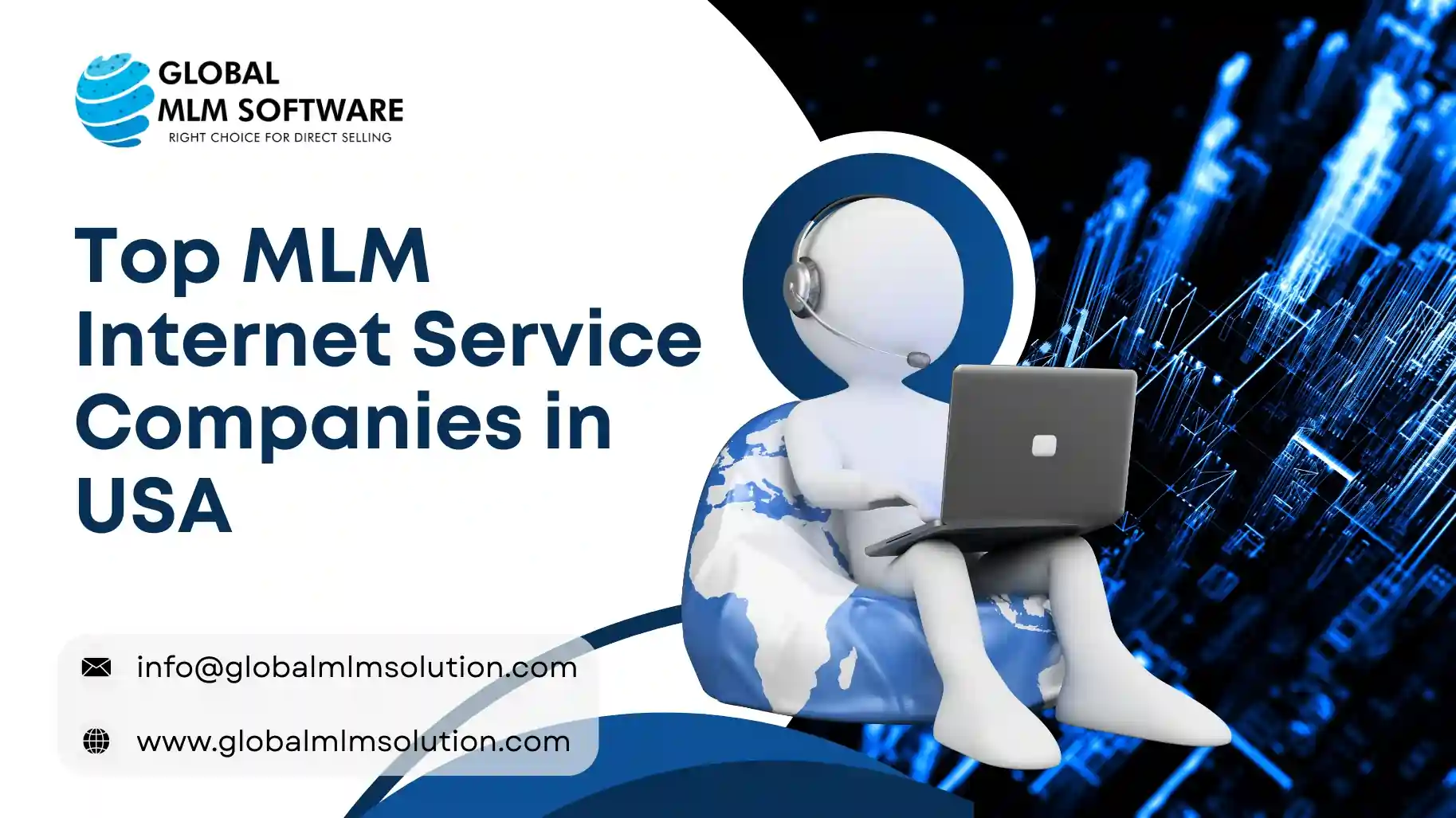As an MLM entrepreneur, you’ve probably asked yourself at some point, “Is there any difference between direct selling and network marketing?” And if there is, what is it? These two terms are commonly used interchangeably because they both involve person-to-person sales, carried out by a network of independent distributors.
But when you dig a little deeper, there are some important differences between them. This article aims to help you understand these differences and more.
Here, we will break down both concepts in simple terms and help you understand the pros and cons of each, so that you can choose the right model for your product, your team, and your business's long-term vision.
Also, if you are confused about whether to go forward as a network marketer or a direct seller, this is the right place to develop an understanding and take a step towards decision-making.
Let's begin by understanding Network Marketing and Direct Selling individually first.
This Article Contains:
What is Network Marketing?
Network Marketing, also known as Multi-level marketing (MLM), is a distribution model that comes under the umbrella term of Direct selling. It's a system where independent sales representatives, commonly called distributors, join your company's sales network. This network spans across various levels, hence the name multi-level marketing.
The distributors basically have two main duties: selling products and building a team of other distributors in their downline.
They also have multiple income streams. While the primary method is the commission from their own sales, they also get a percentage of the commission from sales made by their downline network.
This model allows your business to scale in a structured way. Instead of hiring a traditional sales force, you empower independent distributors to grow their own networks by duplicating sales activity across teams and geographies.
Over time, your business benefits from increased reach, brand loyalty, and recurring revenue. This model is perfect if you are offering consumables or lifestyle products with high reorder potential, like wellness products, make-up and cosmetics, household items, pet care, etc.
Now, let's understand this model through a real-world example. Imagine you have started a business to sell natural wellness supplements and drinks, called Nature's Gift. Distributor Jim joins your business and recruits three team members in his downline. Those team members recruit other people under them, and so on.
As the network grows, each level contributes to the overall volume, and Jim earns commissions from both his sales and his team's sales. On the other hand, your business gains a broader market penetration without you going through the recruiting process.
What is Direct Selling?
Direct Selling is a distribution model where independent representatives, called distributors, sell your products directly to the consumer in different ways.
Direct Selling actually includes several approaches under its umbrella:
| Types of Direct Selling | Description | Key Feature |
|---|---|---|
| Network Marketing (MLM) | Selling + recruiting distributors | Earn from own sales + downline |
| Single-Level Direct Selling | Selling only, no recruiting | Earn from personal sales only |
| Party Plan Selling | Selling via social gatherings/parties. This may include recruiting. | Social events to drive sales |
| Door-to-Door Selling | Direct home visits to sell products | Personal face-to-face selling |
| Direct Retailing | Selling at events, fairs, and kiosks | Selling at temporary retail spots |
| E-commerce Direct Selling | Selling online directly to consumers | Online selling & sometimes recruiting |
Unlike network marketing, direct selling may or may not focus on team building along with product sales.
In most direct selling models, especially single-level and door-to-door selling, distributors primarily earn income through retail profits or commissions on their personal sales. There's no guaranteed need for downlines, overrides, or compensation based on team performance.
Certain direct sales models—such as network marketing and party plan selling—leverage recruitment as a growth strategy, often providing structured, tiered incentives to encourage team building.
Direct sales approaches are particularly effective for products that benefit from a personalized, high-touch sales experience—such as beauty tools, home goods, or kitchen appliances—where relationship-building and product demonstrations play a key role in driving sales.
Here's how this model works out in real life. Imagine your MLM business, TruGlow Beauty, offers a line of luxurious anti-aging beauty devices through single-level direct selling.
An independent consultant, Sara, hosts parties where she educates customers, lets them try the products, and takes orders. She gets a commission on every product she sells.
If she builds a team or earns from anyone else's sales, it becomes a part of network marketing, one of the direct selling methods.
What is the Difference Between Network Marketing and Direct Selling?
Now that you have a clear understanding of each of these terms, let's look into how they differ in other aspects. To help you out, we've created a side-by-side comparison of all the differences between network marketing and direct selling:
| Sl No | Aspect | Network Marketing (NM) | Direct Selling (DS) |
|---|---|---|---|
| 1 | Business Model Structure | Multi-level structure with upline/downline hierarchy | Can be single-level or multi-level; includes party plan, door-to-door, or online direct selling |
| 2 | Revenue Streams | Commissions on retail sales + override commissions from downline sales | Commissions are primarily from personal retail sales. Some models may include override bonuses if downlines are allowed. |
| 3 | Recruitment Emphasis | High focus on team building and downline expansion | Varies by model; recruitment is optional and often limited to qualified distributors |
| 4 | Compensation Plan Complexity | Complex plans (unilevel, binary, matrix, hybrids) | Typically simple commission plan, but some hybrid models may introduce multi-level components |
| 5 | Long-Term Scalability | High scalability via network duplication | Moderate scalability, depending on whether team-building is included |
| 6 | Compliance Risk | Higher risk, due to aggressive recruitment and false income claims | Lower risk, especially in product-focused models with minimal recruitment |
| 7 | Operational Infrastructure | Requires advanced backend systems like MLM genealogy software, commissions, and rank tracking. | Ranges from basic order tracking to moderate infrastructure if using multi-level elements |
| 8 | Distributor Training Focus | Distributors should be trained on product knowledge + leadership, and recruiting skills | Distributors should focus on product demos, sales techniques, and customer service |
| 9 | Onboarding & Retention Strategy | Community-focused with team activities and growth incentives | Simple onboarding, focused on product use and making sales. Retention strategies depend on whether team-building elements are included or not. |
| 10 | Product Suitability | Best for consumables or products with repeat purchase potential. For example: essential oils, skincare, wellness items, etc. |
Ideal for consumable as well as high-touch, demonstrable, or premium products. For example: luxury cosmetics, beauty devices, jewelry, and kitchen appliances, etc. |
| 11 | Income | Variable income with potential for passive income via team sales | Direct, transactional income based on personal effort. However, residual income may be increased by team building. |
| 12 | Leadership Development | Key to success. Leaders mentor their team and grow by reaching new ranks | Less about team-building, more about being a strong individual salesperson. |
| 13 | Digital Transformation Requirements | Requires advanced software with CRM, team tracking capabilities, e-commerce MLM software, mobile apps, etc. | Basic e-commerce and customer tracking tools are sufficient for most direct sales models. |
| 14 | Strategic Business Goals | Rapid expansion and market penetration | Targeted brand-building and customer loyalty |
Final Thoughts
As we come towards the end of our discussion on the difference between network marketing and direct selling, one thing is clear. While both options have common ground, they cater to specific niches and have exclusive business strategies.
So, choosing the right model for your MLM business ultimately depends on your vision, target audience, and how you want your distributors to engage with the brand.
If you value close, personal relationships and individual selling efforts, you may choose direct selling approaches like single-level direct selling or door-to-door selling.
On the other hand, if you're looking to scale quickly through team-building and leveraged income opportunities, network marketing might be a better path.
There’s no one-size-fits-all answer. What matters most is aligning your model with your business goals and ensuring you have the right systems in place to support growth, transparency, and distributor success.
FAQs
1. Why is it important to understand the difference between network marketing and direct selling?
Understanding what is the difference between network marketing and direct selling will help you choose the right model for your business, align your commission goals, and build a structure that matches your growth vision.
2. Can a company use both network marketing and direct selling models?
Yes, many companies adopt elements of both. Some businesses start with direct selling and gradually incorporate network marketing to expand their reach and incentivize growth.
One perfect example of a hybrid is Mary Kay. Consultants are encouraged to host parties for product demos, and are encouraged to build teams for higher commissions.
3. Is Network Marketing the same as direct sales?
Not exactly! Network marketing is actually a type of direct selling. While some models of direct sales can be just about selling products one-on-one, network marketing adds team-building and earning from recruits’ sales, too.
References
-
Entrepreneur.com
-
Sciencedirect.com
Disclaimer: Global MLM Software do not endorse any companies or products mentioned in this article. The content is derived from publicly available resources and does not favor any specific organizations, individuals or products.









